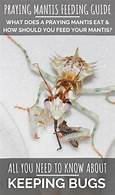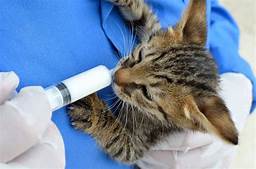What to Feed Pet Praying Mantis
Praying mantises are fascinating creatures that make for unique and educational pets. They are relatively easy to care for, but one of the most important things you need to know is what to feed them. Choosing the right insects to keep your pet healthy and happy is a crucial part of praying mantis care.

Live Insects
The primary food source for praying mantises is live insects. They are ambush predators that rely on quick movements to capture their prey. Here are some common insects that you can offer your praying mantis:
1. Crickets: Crickets are a popular choice for feeding praying mantises, as they are easy to find and relatively inexpensive. They come in a variety of sizes, so you can choose the appropriate size for your mantis.
2. Dubia Roaches: Dubia roaches are another common feeder insect for praying mantises. They are known for being clean and easy to care for, making them a good option for those who are new to keeping praying mantises.
3. Flies: Some species of praying mantises will also eat flies. Fruit flies and house flies are common choices, but you can also offer wild flies if you catch them outdoors.
Feeding Frequency
The frequency with which you feed your praying mantis will depend on its age and size. Generally speaking, younger mantises need to be fed more often than adults. Here are some guidelines:
1. Juvenile Mantises: Juvenile mantises should be fed daily. You can offer them 2-3 small insects per day, or 1-2 larger insects.
2. Adult Mantises: Adult mantises can be fed every other day or every three days. The amount of food you offer will depend on the size of your mantis. A good rule of thumb is to offer 2-3 insects that are about the same size as the mantis's head.
3. Pregnant Mantises: Pregnant mantises should be fed more frequently, as they need extra nutrients to support their developing eggs. You can offer them 3-4 insects per day, or 2-3 larger insects.
Precautions
Here are a few precautions to keep in mind when feeding your praying mantis:
1. Avoid insects that are too large: Insects that are too large can be difficult for your praying mantis to eat and may cause digestive problems.
2. Remove uneaten food: Uneaten food can attract unwanted pests and bacteria, so it's important to remove it from the enclosure regularly.
3. Supplement with vitamins and minerals: Praying mantises need a balanced diet to stay healthy. You can supplement their diet with vitamin and mineral supplements that are specifically designed for praying mantises.
Other Considerations
In addition to live insects, you can also offer your praying mantis other foods, such as:
1. Honey: Praying mantises are attracted to the sweet taste of honey. You can offer them a drop of honey on a cotton swab or a small piece of fruit.
2. Nectar: Praying mantises will also drink nectar from flowers. You can offer them a small dish of sugar water or diluted fruit juice.
By providing your praying mantis with a variety of live insects and other foods, you can ensure that it gets the nutrients it needs to stay healthy and thrive in captivity.
Declaration: All article resources on this website, unless otherwise specified or labeled, are collected from online resources. If the content on this website infringes on the legitimate rights and interests of the original author, you can contact this website to delete it.





